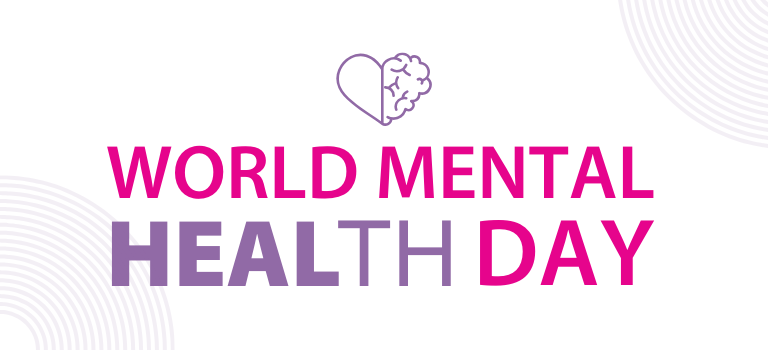Dr. Enrique Flechas joined Woman’s in 2022 with more than two decades of experience in caring for women suffering from mental health issues. He is also a member of the American Board of Psychiatry and Neurology. Specializing in perinatal psychiatry, he understands the importance of a patient’s mental well-being both during and after pregnancy. Dr. Flechas will also play a significant role in Woman’s new perinatal mental health unit opening in September 2024.
For World Mental Health Day, Dr. Flechas discusses mental health and answers some frequently asked questions. Read his responses below.
At what age should a woman be concerned about her mental health?
While age doesn’t necessarily play a factor, major life events are the main triggers of mental health issues. For example, going to college, getting married, having children, moving — those are just a few examples of life events that can cause stress, depression or anxiety. My advice to patients is to stay self-aware with your own mental health. If something starts to feel off, speak up and reach out for help.
What is the difference between mental health and mental illness?
When we’re talking about mental health we’re really talking about your mental well-being. To improve your mental well-being, I encourage you to get enough sleep and exercise to get those happy endorphins going, not only for stress management but to also manage anxiety. Many women turn to yoga and meditation as helpful tools to manage their stress and anxiety. Sometimes, sleep, exercise and meditation are not enough, and that’s when we start to evaluate it as a mental illness which can be treated with counseling or medication.
What are the signs that someone might be struggling with their mental health?
The easiest way to determine if someone is struggling with their mental health is if their daily routine or normal behavior has drastically changed. For example, if you’re someone who loves to go out and socialize, but suddenly become withdrawn or have a difficult time functioning at work— those sudden changes in behavior could mean that you’re struggling with mental health issues.
Are mental health disorders permanent?
It depends on if the condition is chronic or acute. Schizophrenia and bi-polar disorder are often chronic conditions which means they can be managed but not necessarily cured.
Depression, stress and anxiety are episodic and usually triggered by a major life event such as a death in the family, a miscarriage or stress from work, but they can be treated and can eventually go away.
How do I talk about my mental health difficulties?
I recommend you reach out to your primary care physician or your OB-GYN. Your primary care physician is very well-trained and should generally be the first point of contact for anyone struggling with mental health issues. They can guide you to a therapist or psychiatrist to help restore your mental well-being.
How can I help someone I think might be struggling with their mental health?
If you know someone who could be struggling with mental health issues, the biggest challenge is to be direct and honest with them. Let them know of your concern, but don’t try to diagnose them. Instead of saying, “I think you’re depressed,” say “Hey, I’m worried about you, how are you feeling?” Let them know you’re there to support them with no judgement.
Just talking about mental health and expressing concern may get them to open up and seek professional help.
Are there any significant hormonal changes that could affect a woman’s mental health?
Yes, estrogen fluctuations can have a huge impact on a woman’s mental health. Menstruation, pregnancy, post-partum and menopause are all stages of hormonal change where a woman can experience fluctuations in their estrogen. These changes affect serotonin levels which is the necessary hormone that makes you feel happy, calm and emotionally stable. Serotonin changes can lead to feelings of depression and anxiety.
If there’s one thing you want people to take away from this, what would it be?
I want all women to know that they should not suffer in silence. You are not alone. People think because they have depression or anxiety, they have to be on medication and that’s just not true. You can’t expect change without first addressing the problem and making the change toward a healthier you.
You don’t have to have a mental health problem to talk to a therapist or psychiatrist. Talking to someone can help you develop mechanisms to prevent or handle events that may trigger your mental health to suffer. An ounce of prevention is worth a pound of cure.
(Dr. E. Flechas, M.D., phone interview, October 9, 2023)

